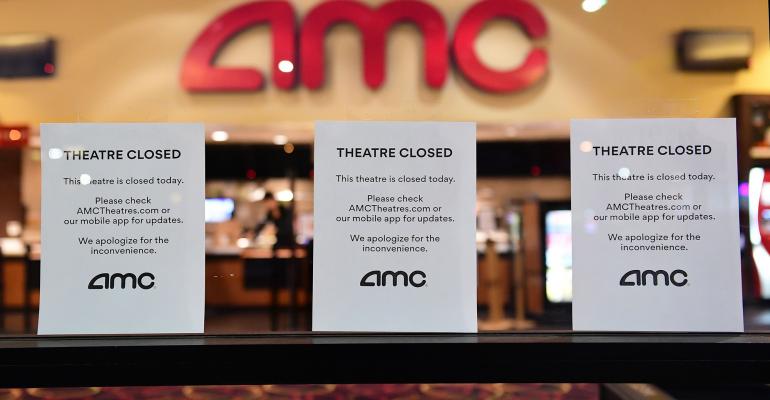Gyms, soft goods retailers, movie theaters and food and beverage businesses are among the hardest hit retailers asking for rent relief from landlords.
“Nearly every tenant category that was forced to close due to COVID-19 [is asking for rent relief,]” says Phil Voorhees, vice chairman at real estate services firm CBRE. “Restaurants (except some drive-thru and fast food), food and beverage, gyms and health clubs, soft goods retails, theaters and cinemas. This list is long and deep.”
For example, 24 Hour Fitness, which has more than 430 locations across the U.S., recently filed for Chapter 11 bankruptcy due to COVID-19 repercussions. The gym has paid none of its rent since the end of April 2020, according to data on which retailers are paying rent from property management software firm Datex. AMC Theatres, Cinepolis and Regal Cinemas movie theater chains have also not paid rent since April.
Even as states reopen and businesses that have been closed are able to open again, large restaurant chains, movie theaters and gyms will be forced to modify their business models and will need to pay lower rents to account for a reduction in patrons, says Jesse Shannon, chief investment officer with Branch Properties, a private real estate investment firm. So far, restaurants seem to be the tenants most frequently in need of financial help from their landlords.
“I think number one is restaurants. I think restaurants [requesting rent relief] are the most frequent because we have so many restaurants,” says Sandy Sigal, CEO of shopping center owner NewMark Merrill Cos., which operates about 80 centers located throughout California, Colorado and Illinois. “The ones we have fewer of, but definitely needed support are gyms, trampoline parks and the movie theaters.”
Tenant types asking for rent relief at the roughly 80 East Coast shopping centers managed by Levin Management Corp. include specialty apparel retailers, entertainment venues and fitness center operators, according company CEO Matthew K. Harding. He adds, however, that rent relief requests span across virtually all non-essential tenant types and are widespread.
Levin Management uses a short checklist of questions, looking at when a retailer closed due to shelter-in-place mandates, whether they applied for government assistance through the CARES Act and what assistance they have received, in order to evaluate whether to grant rent relief requests, says Harding.
“Landlords want to know if the tenant applied for governmental assistance, and if the tenant received it. Sales performance during COVID-19, if [they were] able to remain open, and the tenant’s financial strength are key considerations influencing landlord concessions,” notes Voorhees. “The tenant’s impact on a center’s occupancy relative to co-tenancy provisions and operating covenants are also key considerations.”
According to a spokesman for shopping center REIT Kimco Realty, while the landlord has been working with tenants on rent deferrals when necessary, it does eventually expect repayment. “The repayment terms vary widely, with greater latitude provided to the smaller mom-and-pop shops. For fitness and theater operators, we’ve also provided some flexible and creative repayment options,” the spokesman says.
Generally, if the tenant is viewed as remaining viable post-COVID, landlords are offering assistance to help the tenant stay in place. “I expect nearly every retail category will survive COVID-19 in some form or fashion,” says Voorhees.

